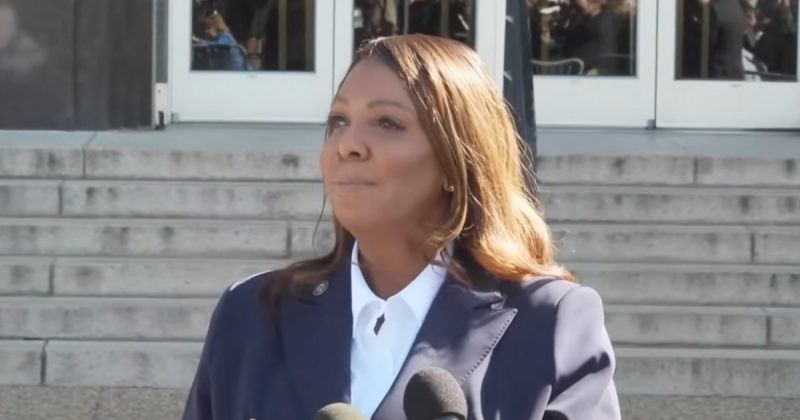New York Attorney General Letitia James pleaded not guilty Friday to two federal charges connected to her 2020 purchase of a property in Norfolk, Virginia.
The 67-year-old Democrat appeared confident as she entered the courtroom and responded clearly when prompted by her attorney, Abbe Lowell, “Not guilty, judge, to both counts.”
Following the arraignment, James addressed supporters outside the courthouse, invoking the language of Martin Luther King Jr.’s “I Have a Dream” speech.
She told the crowd, “I believe that justice will rain down like water and righteousness like a mighty stream,” referencing MLK’s call for justice and equality.
Supporters chanted, “We Stand With Tish!” and “No Fear!” James did not directly address the specifics of the charges during her remarks.
James was indicted on Oct. 9 by a federal grand jury on one count of bank fraud and one count of making a false statement to a financial institution.
Interim U.S. Attorney Lindsey Halligan filed the charges. If convicted on both counts, James could face up to 60 years in federal prison and fines totaling $2 million.
Prosecutors claim James purchased a three-bedroom, one-bath home on Peronne Avenue using a $109,600 loan, stating in the mortgage documents that she was the “sole borrower to occupy and use the property.”
Authorities allege she never lived in the home, which was instead rented to her grandniece, Nakia Thompson.
Prosecutors argue this misrepresentation enabled James to secure favorable loan terms, saving roughly $19,000, according to the Conservative Brief.
During the hearing, Judge Jamar Walker, a Biden appointee, released James on a personal recognizance bond and scheduled her trial to begin Jan. 26, 2026. The government has indicated it plans to call up to 10 witnesses during the trial.
James’s defense team is challenging the case on procedural grounds, arguing that President Donald Trump unlawfully appointed Halligan following the resignation of the Eastern District of Virginia U.S. Attorney Erik Seibert.
They also claim the prosecution is politically motivated, labeling it a potential “vindictive prosecution,” citing Halligan’s previous role as an attorney for Trump.
Defense attorneys additionally raised concerns about Halligan’s communications with the media, suggesting ethical boundaries may have been crossed during the investigation.
Lowell referenced a recent Lawfare article highlighting Halligan’s media statements, noting the potential issue without formally requesting sanctions.
Prosecutors countered that any documentation of media interactions should apply to both sides, noting James has actively discussed the case publicly through social media and press statements.
James has long been a high-profile critic of Trump, and her legal troubles have drawn national attention.
The arraignment underscores her determination to remain publicly engaged despite the federal charges. Her defense is expected to focus on both procedural challenges and claims that Halligan’s conduct may have improperly influenced the case.
The Norfolk property case highlights the intersection of politics and law, raising questions about the role of federal prosecutors and the boundaries of legal oversight when high-profile figures are involved.
James’s approach signals her intent to remain in the public spotlight as the case proceeds, using both courtroom appearances and public statements to frame her narrative.

